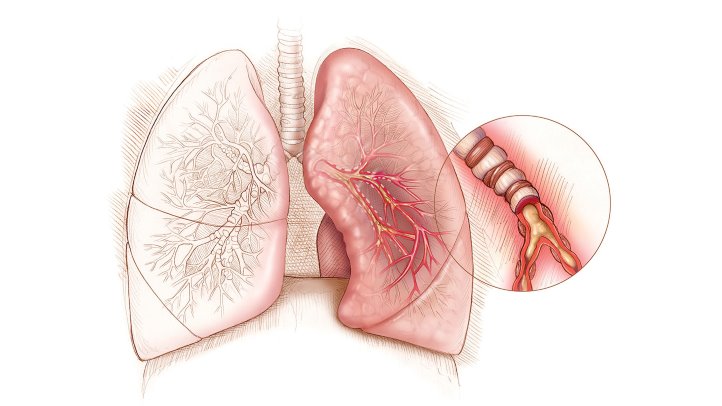What To Do When Severe Asthma Strikes
Are you experiencing shortness of breath, non-stop coughing or wheezing? Everyone experiences asthma differently. While some patients may report only mild symptoms, others may be prone to severe and alarming episodes of asthma.
A case of asthma may be characterized as severe if a patient is having difficulty controlling its symptoms despite high-intensity and otherwise effective medications, and even if the patient inhaled or used the medications correctly.
It’s estimated that around 5% to 10% of asthma patients have severe asthma1, an alarming figure given that severe asthma can be life-threatening if not closely monitored and treated.
How to tell if you have severe asthma
If you’ve been taking your medications exactly as how your doctor instructed and your asthma still persists, your case may be classified as severe.
Seek immediate medical attention if you experience any of these: more frequent and more severe episodes of asthma medications seem to stop working and fail to bring down the swelling in your airways, symptoms no longer improve even after using a rescue inhaler, stop talking halfway through sentences to catch your breath, or your peak flow meter readings continue to drop.
Complications of alarming episodes of asthma
Poorly controlled asthma will most definitely affect your daily life, resulting in the following: feelings of exhaustion and fatigue, inability to focus, underperformance and absences from work or school, inability to exercise or engage in physically intensive everyday activities, which may result in weight gain, frequent visits to the hospital and increased sensitivity to certain foods and food ingredients, air pollutants, and others
Prolonged and severe asthma may also lead to airway remodeling2. This refers to structural changes in the lungs and air passages, which may thicken and narrow due to asthma, making it permanently difficult for the patient to breathe. This shouldn’t be taken lightly, as the resulting damage may be irreversible and cause long-term decline of lung function.2
In addition, other complications of asthma that is severe3 are: chronic obstructive pulmonary disease (COPD), pneumonia and other lung infections, partial or total lung collapse and respiratory failure due to dangerously low levels of oxygen in the blood.
Treating severe asthma
If your asthma symptoms don’t go away even after regular medication, consult your doctor immediately. During a relentless asthma episode, It’s best to have someone accompany you to the hospital. Alternatively, you may also seek emergency hospitalization services.
Once admitted to the emergency room, your doctor will want to make sure that your symptoms are caused by asthma and not by other lung ailments such as pneumonia. Treatment for a serious asthma episode may include continuous use of nebulizer, use of supplemental oxygen, and steroid medicines.
If these are still insufficient, you may be brought to the hospital’s intensive care unit4. A breathing tube inserted through your nose or mouth may help you breathe until your lungs and airways fully recover.
Once you’re well enough to go home, your doctor will review your asthma action plan and medications to help manage your condition.
This article is not intended to be a substitute for professional medical advise, diagnosis or treatment. Always seek the advise of your doctor or other qualified health provider with any questions you may have regarding a medical condition.
———————————————
[1] American Academy of Allergy Asthma and Immunology. The prevalence of severe refractory asthma. Reference: https://www.aaaai.org/global/latest-research-summaries/New-Research-from-JACI-In-Practice/refractory-asthma
[2] Asthma Canada. Airway remodeling explained. Reference: https://asthma.ca/airway-remodelling-explained/
[3] HealthDirect. Complications of asthma. Reference: https://www.healthdirect.gov.au/complications-of-asthma
[4] WebMD. What’s the treatment for severe asthma? Reference: https://www.webmd.com/asthma/severe-asthma-treatments

